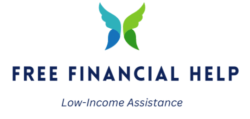Single fathers raising children experience the same challenges as single women. They have similar household expenses, childcare costs, and other financial responsibilities. The most important aspect of raising children, regardless of gender, is that children have a stable, nurturing environment.
According to Statista, 2.5 million father-only households exist as of 2023. In 2022, there will be about 7.13 million single-family households in the United States. So, though the numbers seem to be decreasing, many dads are still raising their children.
Programs are available to help single fathers maintain family stability. In this article, we will explore a range of financial assistance programs that single parents can consider accessing to improve their economic well-being.
TABLE OF CONTENTS
Eligibility Requirement for Single Father Assistance
These programs are typically designed to provide financial support and resources to single parents trying to overcome economic challenges. However, it is helpful to check with the particular agency you are applying with about specific requirements to obtain help.
Income Eligibility
Government assistance programs require applicants to have a gross family income below the U.S. Federal Poverty guidelines to receive assistance. Benefits vary depending on the program and the cost of living in your area. Use this calculator to determine your federal poverty level.
- Custody or Legal Guardianship – You must prove legal custody or guardianship of the child or children you care for. These documents can include birth certificates, social security numbers, court records, and other documents proving you have legal custody.
- Number of Dependents – The number of people in the home will determine the benefits you will receive each month for each child. For each additional person, the allotment increases by a certain amount.
- Employment Status and Work Requirements – Depending on the state in which you live, there may be a work requirement or proof you are actively looking for work, participating in job training, or meeting work requirements. This is designed to encourage recipients to become self-sufficient in the long term.
- Child Support – In some cases, receiving government assistance might be contingent on actively seeking child support from the other parent. Cooperating with child support enforcement agencies to receive benefits would be best.
- Residency and Citizenship –Many government assistance programs are available only to legal residents or citizens of a country. You’ll need to provide appropriate documentation to prove your residency status.
- Child’s Age – Some programs might have age restrictions on the children who are eligible for assistance. Make sure you are aware of these age limits.
Federal Poverty Level (FPL)
| Family size | 2022 income numbers | 2023 income numbers |
|---|---|---|
| For individuals | $13,590 | $14,580 |
| For a family of 2 | $18,310 | $19,720 |
| For a family of 3 | $23,030 | $24,860 |
| For a family of 4 | $27,750 | $30,000 |
| For a family of 5 | $32,470 | $35,140 |
| For a family of 6 | $37,190 | $40,280 |
| For a family of 7 | $41,910 | $45,420 |
| For a family of 8 | $46,630 | $50,560 |
| For a family of 9+ | Add $4,720 for each extra person | Add $5,140 for each extra person |
How to Apply for Government Financial Benefits
Applying for government benefits can be overwhelming for a single person, especially if they have never done so. One of the most critical steps is ensuring you have all your documents. If you are missing a required document, it can slow up the approval process.
Temporary Assistance vs. Long-Term Support. Assistance programs can vary in duration and scope. Some might provide quick help during need, while others could offer more comprehensive, long-term support.
But if you can figure out how to assemble a toy with “easy instructions” that aren’t so easy, you can navigate this. Let’s break it down:
Needed Documents
You’ll need your ID, Social Security card, pay stubs, and maybe your lease agreement. Make sure to gather all the documents you’ll need for verification. It’s sort of like assembling your Avengers before taking on Thanos.
The Application Process
Each assistance program will have its application process, which may involve submitting forms, providing documentation, and attending interviews. It’s essential to follow the instructions carefully.
Application Form
These days, most programs have online applications, which is a godsend. If not, you may have to download a PDF or get a paper application from a government office. Please fill it out as accurately as possible.
Submit and Wait
Once you’ve filled everything out, you’ll usually need to apply online, by mail, or in person. Then comes the least fun part: waiting. Government offices aren’t exactly known for their speed. You can use this time to binge a new series or try to beat your high score in whatever game you’re into.
The Interview and Verification
You’ll have to go through an interview for some programs. Don’t stress; it’s generally straightforward. They want to confirm that you’re in need and not trying to game the system. You might have to show additional documentation, so keep all your papers ready.
Approval and Benefits
If approved, you’ll receive benefits, often through a debit card for programs like SNAP or direct deposit for unemployment insurance. From here, it’s all about management and ensuring you use the resources wisely.
Regular Updates
Most programs require you to update your info regularly. If your income changes or you move houses, you’ve got to let them know. Failure to do so could result in losing your benefits, and nobody wants to deal with that drama.
Single Dad Financial Benefits to Apply For
Temporary Assistance for Needy Families (TANF)
TANF assistance provides cash assistance to eligible single fathers. This benefit covers basic needs such as food, shelter, and clothing. TANF also includes work requirements and job training components to help recipients gain employment and financial independence.
Supplemental Nutrition Assistance Program (SNAP)
Single fathers can apply for SNAP benefits to ensure their children have access to adequate nutrition. Groceries can be used to buy food where SNAP is accepted.
Child Care Assistance
Childcare costs can be a significant financial burden for single fathers who must work or attend school. Many states offer childcare assistance programs that help cover the cost of daycare or after-school care.
These programs enable single fathers to maintain employment or pursue education without worrying about childcare expenses.
Medicaid
Healthcare costs can significantly concern single fathers. Medicaid provides free health care to disadvantaged low-income individuals and families. Qualifying single fathers can ensure their children see a doctor and dentist regularly.
Low-Income Energy Assistance Program (LIHEAP)
LIHEAP assists eligible low-income households in covering heating and cooling costs. Single fathers can apply for LIHEAP to receive assistance in paying utility bills and ensuring a comfortable living environment for their children.
Housing Assistance Programs
Affordable housing can challenge single fathers. Programs like Section 8 Housing Choice Vouchers and public housing options provide subsidized housing for eligible individuals and families.
These programs can significantly reduce housing costs, allowing single fathers to provide stable homes for their children.
Section 8
Single housing programs are a lifeline for people struggling to afford a place to live. Whether you’re low-income, disabled, or homeless, these programs try to give you a decent shot at stable housing. They’re funded by different levels of government—federal, state, and local—so it’s a team effort.
You’ve probably heard of Section 8 vouchers or public housing. These help cover the cost of rent, making it way more affordable. There’s also something called LIHEAP that helps you pay for things like heating and electricity, which is a big deal in the winter.
How Do I Qualify?
Like with many government programs, there an essential qualification to be eligible;
- You must be an American citizen or a legal non-citizen resident.
- Your family income must be at or below 50% of the U.S. Poverty guidelines
- Provide proof of identity of self and all in the household.
- Have proof of financial situation, pay stubs, enrollment in a government program, or unemployment letter.
Other Benefits
Earned Income Tax Credit (EITC)
The Earned Income Tax Credit (EITC) is a financial boost for low to moderate-income workers. When you file your taxes, if you qualify, EITC can reduce the amount you owe or even refund you. It’s fantastic because it puts more money back into your pocket, making life easier.
The amount a single father gets depends on income, marital status, and how many kids you have. This credit is a game-changer for many families, helping with bills, groceries, or saving for the future.
This Tax Credit helps low to moderate-income working individuals and families. Single fathers earning a low to moderate income may qualify for this credit, which can result in a substantial refund. The EITC is beneficial in providing extra financial support during tax season.
Things to Consider If You’re Unemployed
Unemployment Insurance
In the unfortunate circumstance of job loss, single fathers might find solace in unemployment insurance to make these benefits to needy families. This assistance is temporary financial aid for those who involuntarily lost their jobs.
It is a crucial safety net, offering financial support as single fathers strive to secure new employment opportunities.
Scholarships and Education Grants
For single fathers seeking to bolster their job prospects and income potential through continued education, scholarships, grants, and financial aid programs are tailored for non-traditional students.
These financial avenues alleviate the burden of expenses associated with tuition, textbooks, and other academic necessities.
Non-Profit Organizations and Charities
An array of non-profit entities and charitable organizations extend financial assistance, grants, and services to single fathers and their families. These charitable institutions often address a spectrum of necessities: housing, education, healthcare, and childcare.
Earned Income Tax Credit (EITC)
This Tax Credit helps low to moderate-income working individuals and families. Single fathers earning a low to moderate income may qualify for this credit, which can result in a substantial refund. The EITC is beneficial in providing extra financial support during tax season.
Recent Posts
It's not always easy to find free mental health services nearby. Still, some groups offer free and confidential counseling, along with overall support for emotional health, especially for those...
Prayer for a Financial Breakthrough may seem strange for a financial help website. However, when you think about it, prayer is one of the best things you can do when you need help. No matter what...



